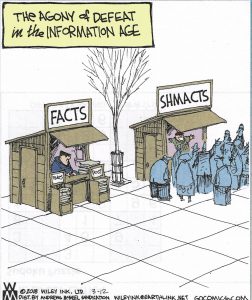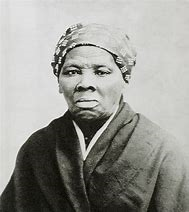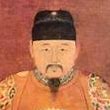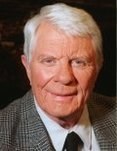Has the reader ever tried to walk on a railroad rail? It seems easy enough but it isn’t long before most walkers fall off. Now imagine that the rail isn’t still; it is slithering like a snake slithers through grass. Add to this unstable situation the fact that it is snowing hard along with a stiff wind. Finally, there is no choice but to walk this rail all the way to the reader’s home two miles away.
Welcome to the twenty-first century.
There have been terrible life ending moments in Planet Earth’s history. For example, around 439 million years ago, 86% of life on Earth was wiped out in an event called the Ordovician–Silurian Extinction – the first of five global extinctions. The most recent extinction, the Cretaceous-Paleogene brought on the extinction of dinosaurs. A combination of volcanic activity, asteroid impact, and climate change effectively ended 76% of life on earth 65 million years ago. As noted, there have been five such extinctions. Mariner has cited Elizabeth Kolbert’s book ‘The Sixth Extinction’ in earlier posts. Elizabeth claims that this extinction already is occurring.
She likely is correct in her assumptions: The International Union for Conservation of Nature reported more than 800 animal and plant species have gone extinct in the past five centuries. Today there are nearly 17,000 threatened with extinction.
Like snow falling on a shifting rail, add the issue of global warming. The Ordovician–Silurian Extinction had a similar situation but in reverse; the Earth grew very cold.
– – – –
What else is new for the twenty-first century? Not much of significance has been added to the world of economics since John Maynard Keynes (floating dollar) and Milton Friedman (free market) contributed early in the last century. In the twenty-first century, the world needs something new; the world economy is beginning to stumble; most economists believe there will be a worldwide recession any time now. Everything from a shifting of population age to the disappearance of earthly resources (Helium, gypsum, indium and rare earth minerals, (the last a vital ingredient in smartphones, hybrid cars, wind turbines, computers, etc.) just to name a few.
Further, it may be theories of territory are the elephant in the room of economics, that is, nations. The speed of the Internet and the power of computers have warped the timeline of economics, often running over small nations, nations without competitive economies and nations with limited natural resources.
Something else affecting world economy is the disappearance of natural conditions like unused land, fresh water and climate control due to abuses with fossil fuels and disregard for the needs of nature (estuaries, breeding grounds, etc.).
– – – –
Hmmm, what else is new for the twenty-first century? Oh yes – artificial intelligence. Can humans handle all this new stuff for the new century: extinctions, failing economy, global warming and do it all with massive changes in culture as well? There’s no choice, home is still two miles away.
Just months ago David Brooks, a political/economic pundit on PBS News Hour, wrote “The Second Mountain” which suggests that the nuclear family is a disadvantaged unit in modern times. Shall everyone revisit polygamy or return to communes? David makes a valid point that nuclear families, especially at lower income levels, do not have enough income to sustain a happy, rewarding life – whether it’s a home, salary, transportation, health or education. A simple insight: how many minimum wage earners take a vacation to a pleasurable place? Could they if there were four or five wage earners in the family?
Multiply the challenge to the nuclear family by taking away 80 percent of the jobs that support these families. This situation alone calls for a new economic theory and it isn’t capitalism, corporatism or free market.
– – – –
How about human privacy? When mariner was a young adult, he spent time at an Atlantic coast city. He learned that the city knew how many visitors were in town by the amount of waste water discharged. In other words, population was counted by how many folks were flushing toilets. At least the city didn’t know specifically that it was mariner using the toilet. Today, they know. If corporations and insurance companies have their way, they will know mariner ate too much bacon today and skipped his walk. His health insurance will cost more and he will have to pay for another automatic delivery of bacon with money he never personally controlled.
Welcome to the twenty-first century.
Ancient Mariner







